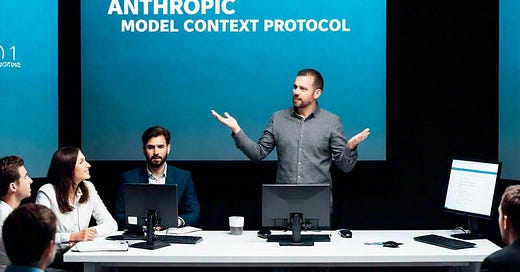Anthropic launches tool to connect AI systems directly to datasets
The Model Context Protocol connects an AI system to multiple data sources, which Anthropic says can eliminate the need to create custom code for each one.
Anthropic has released a new open-source tool to connect AI assistants directly to the information they need to inform their responses or carry out tasks. The new Model Context Protocol (MCP) provides a universal connection to all sorts of data sources, which Anthropic says will improve performance.
Earlier this month, OpenAI started testing a new “Work …
Keep reading with a 7-day free trial
Subscribe to Neural News Network to keep reading this post and get 7 days of free access to the full post archives.



